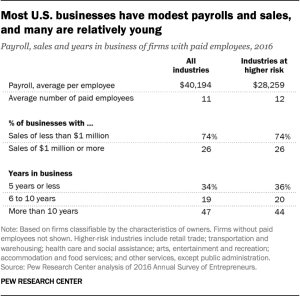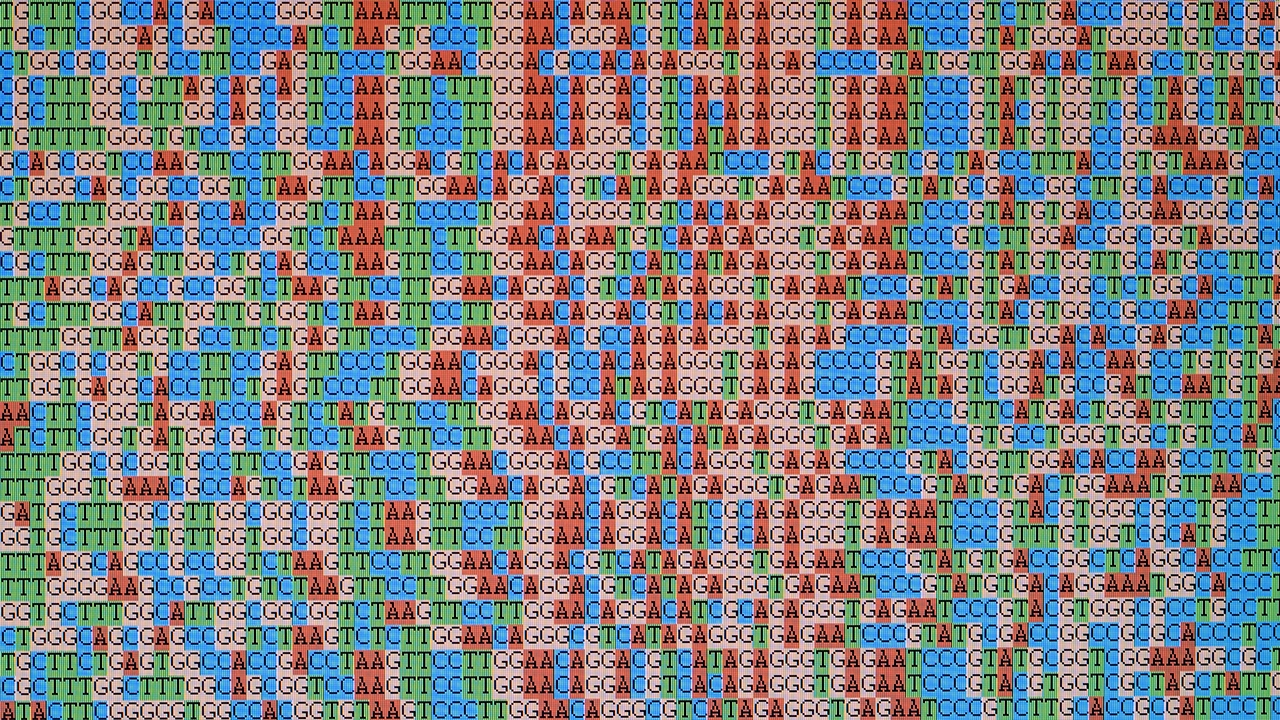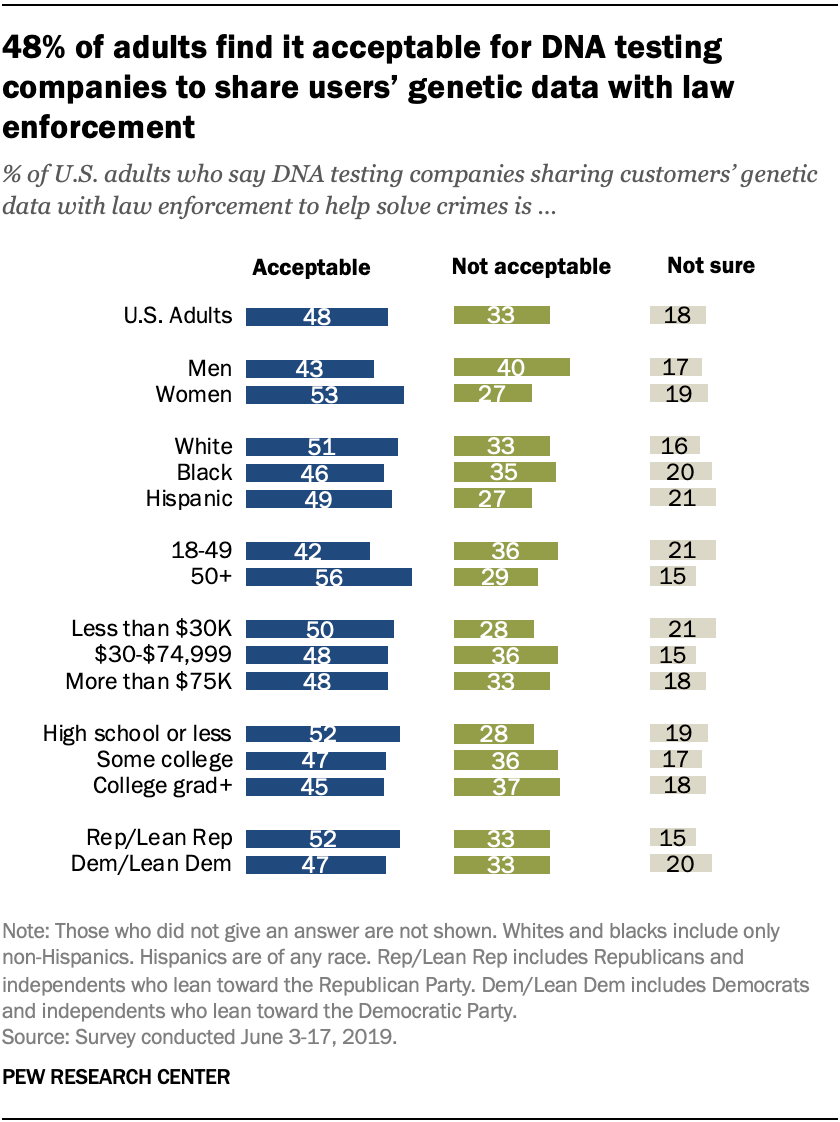

Roughly half of Americans (48%) say it is acceptable for DNA testing companies to share customers’ genetic data with law enforcement agencies to help solve crimes, according to a Pew Research Center survey of U.S. adults conducted June 3-17, 2019. Fewer – a third – say this is unacceptable, while 18% are unsure.

These findings come at a time when the use of at-home DNA testing kits has raised concerns about whether consumers understand and are comfortable with the use of their data by police. The Department of Justice recently announced guidelines allowing federal investigators to use data gathered by commercial DNA testing websites in criminal investigations.
Several mail-in DNA testing services such as AncestryDNA, 23andMe and MyHeritage market their products to Americans so they can trace their family history. This survey finds that 16% of Americans have ever used a mail-in DNA testing service like these.
How we did this
For this report we surveyed 4,272 U.S. adults in June 2019. Everyone who took part is a member of Pew Research Center’s American Trends Panel (ATP), an online survey panel that is recruited through national, random sampling of residential addresses. Recruiting our panelists by phone or mail ensures that nearly all U.S. adults have a chance of selection. This gives us confidence that any sample can represent the whole population (see our Methods 101 explainer on random sampling).
To further ensure that each survey reflects a balanced cross-section of the nation, the data is weighted to match the U.S. adult population by gender, race, ethnicity, partisan affiliation, education and other categories. Read more about the ATP’s methodology.
Here are the questions asked for this report, along with responses, and its methodology.
Some groups are more likely than others to report using such tests. Americans living in households with an annual income of $75,000 or higher are more than twice as likely as those in households earning less than $30,000 a year to use these services (21% vs. 10%). And older adults are more likely to use mail-in DNA services: 24% of adults ages 65 and older have used these services, compared with 11% of adults ages 18 to 29.
Similar shares of Americans across most demographic groups say that law enforcement’s use of genetic data for crimes is acceptable, and that applies when asking specifically about Americans’ use of mail-in DNA tests. About half (51%) of adults who have used DNA mail-in services say this use of genetic data is acceptable, compared with 48% of adults who have not used these mail-in services. However, there are a few exceptions where there are differences among groups. For example, 56% of adults ages 50 and older say it is acceptable for DNA testing companies to share genetic data with law enforcement to help solve crimes, compared with 42% of those under 50 years old. There is a smaller, yet statistically significant, difference by party – Republicans and Republican-leaning independents are more likely than Democrats and Democrat-leaning independents to approve of the data use (52% vs. 47%).
Crime-solving with the use of data from DNA testing companies came to broad national attention in 2018 when police used DNA gathered by the ancestry research site GEDMatch to identify the so-called “Golden State Killer.” Investigators also used customers’ data from DNA testing companies for cases that have remained unsolved for decades, such as identifying a body missing since 1916, and arresting a suspect in a 1980 cold case in Colorado.
At the same time, the idea that law enforcement authorities can use DNA collected by companies for commercial purposes has caused some concern among civil rights and privacy advocacy groups like the ACLU.
Note: Here are the questions asked for this report, along with responses, and its methodology.
